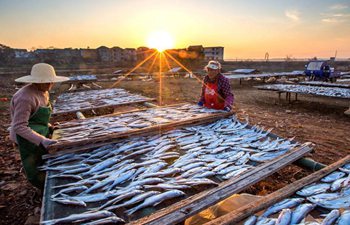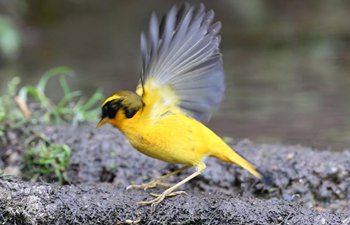SAN FRANCISCO, Dec. 21 (Xinhua) -- The proliferation of palm oil plantations throughout Southeast Asia has worsened widespread deforestation in the region, a study said this week.
The growth of the palm oil plantations has also attracted a large number of wildlife, for example, wild boars that destroy remaining forests, said the study published in the journal Nature Communications.
The research was conducted by Matthew Luskin, a research fellow with the Center for Tropical Forest Science and Forest Global Earth Observatories of the Smithsonian Tropical Research Institute, a global network that studies tropical and temperate forest function and diversity.
Luskin's team found the presence of oil palm fruit has increased by 100 times the population of wild boars living in adjacent forests.
Forest animals like pigs and monkeys feed on the palm fruits, which are rich in oil, an ideal source for the production of a wide range of foods and cosmetic products.
The wild boars not only ate tree seeds but overturned soil for food. Moreover, they also uprooted trees for nesting material, which destroyed the density of tree saplings, the study said.
The wild pigs even damaged more than 50 percent of small trees in the forest, according to Luskin and his research team, who compared their findings to forested areas that are protected from boars.

















